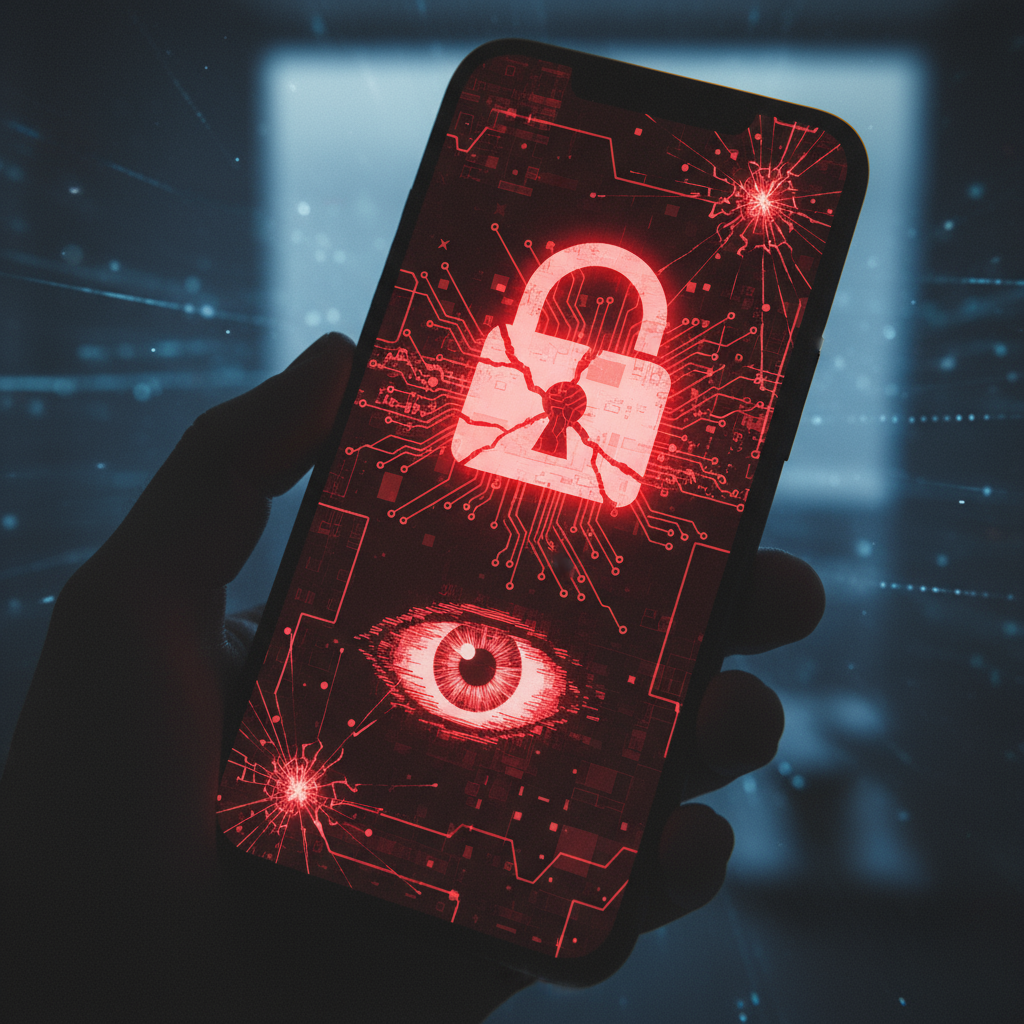“Like a Malware on Your Device”: Signal’s Alarming Warning Against EU Chat Control

Imagine your most private conversations – with loved ones, doctors, or colleagues – being routinely scanned, not by a curious hacker, but by the very systems designed to protect you. This isn’t a dystopian fantasy; it’s the chilling reality painted by Signal, one of the world’s most trusted encrypted messaging services, regarding the European Union’s proposed “Chat Control” regulations. Their stark warning? This initiative is “like a malware on your device.” It’s a sentiment that should send shivers down the spine of anyone who values digital privacy and security.
The EU’s intention, ostensibly, is noble: to combat child sexual abuse material (CSAM) and online grooming. However, the proposed solution involves mandatory client-side scanning of all digital communications, including end-to-end encrypted messages. Signal, known for its uncompromising stance on privacy, has not only voiced strong opposition but has also outlined concrete steps it would take, including withdrawing its services from the EU, should this proposal pass. This isn’t just a technical debate; it’s a fundamental conflict between security, privacy, and fundamental human rights in the digital age.
The Trojan Horse of Client-Side Scanning

At the heart of the “Chat Control” debate lies the concept of client-side scanning. Traditionally, end-to-end encryption (E2EE) ensures that only the sender and intended recipient can read a message, with the service provider having no access to the content. This is the cornerstone of secure communication platforms like Signal, WhatsApp, and nearly all modern messaging apps.
Client-side scanning, as proposed, would require messaging applications to integrate a mechanism that scans messages *before* they are encrypted or *after* they are decrypted on a user’s device. This technology would essentially act as an automated digital sniffer, looking for specific content or patterns flagged as illicit material. While the goal is to detect CSAM, the implications extend far beyond this narrow scope.
Signal’s “malware” analogy is particularly apt. Malware, by definition, is software designed to disrupt, damage, or gain unauthorized access to a computer system. A scanning tool, operating silently and constantly on your device, capable of scrutinizing your private data before it reaches its secure destination, fundamentally undermines the integrity of your and your device’s security. It creates a vulnerability, a backdoor that, once opened, can be exploited for purposes far beyond its original intent, leading to a slippery slope of surveillance and censorship.
Erosion of Encryption and the Door to Mass Surveillance
The immediate and most significant consequence of mandatory client-side scanning is the effective erosion of end-to-end encryption. If messages are scanned before encryption, they are no longer truly end-to-end encrypted. The very promise of secure, private communication is broken. This isn’t merely a technical inconvenience; it’s a profound shift in the power dynamic between individuals and authorities.
Furthermore, the technology mandated for scanning would inevitably be imperfect, leading to false positives. Imagine innocent photos of your children, shared with family, being mistakenly flagged as CSAM. This could lead to distressing investigations, reputational damage, and a chilling effect on legitimate communication. The technical challenges of accurately identifying illicit material while avoiding false positives are immense, and the human cost of getting it wrong is incredibly high.
Beyond accidental misidentification, there’s the broader concern of scope creep. If a system is established to scan for one category of content, what prevents it from being expanded to scan for other categories? Dissident political speech, journalistic sources, or even commercial secrets could, in the future, become targets of such scanning, transforming a tool meant to protect children into an instrument of mass surveillance and authoritarian control. This is the slippery slope that privacy advocates, including Signal, are desperately warning against.
Signal’s Stand and the Broader Implications
Signal’s threat to withdraw its services from the EU is not a bluff; it’s a principled stand against what it views as a fundamental compromise of its core mission. They argue that building such a scanning capability into their app would be a betrayal of their users’ trust and would render their end-to-end encryption meaningless. For a company founded on the principle of absolute privacy, complying with “Chat Control” is an existential crisis.
The implications of this debate extend far beyond the EU’s borders. If the EU, a major global economic and regulatory power, successfully implements “Chat Control,” it could set a dangerous precedent for other nations. Authoritarian regimes around the world, already seeking ways to stifle dissent and control information, would undoubtedly point to the EU’s example to justify their own mass surveillance efforts. This could lead to a global race to the bottom in terms of digital privacy, with individuals everywhere losing fundamental rights.
The ongoing struggle between the admirable goal of protecting vulnerable populations and the imperative to safeguard fundamental rights like privacy is complex. However, sacrificing the security and privacy of all citizens for a measure that could be circumvented by malicious actors (who would simply use non-compliant platforms) seems like a dangerously flawed approach. Strong encryption protects everyone, and weakening it makes us all more vulnerable.
Protecting Privacy Without Compromising Safety
The challenge for policymakers is to find effective ways to combat serious crimes like CSAM without undermining the very fabric of secure digital communication. Solutions should focus on strengthening law enforcement capabilities, improving international cooperation, and targeting known perpetrators, rather than implementing blanket surveillance on all digital interactions. Disrupting criminal networks at their source, through intelligence-led operations and robust legal frameworks, offers a more effective and less intrusive path.
The “Chat Control” proposal is a stark reminder that the fight for digital privacy is ongoing and requires constant vigilance. Signal’s powerful statement serves as a critical alarm bell, urging individuals, policymakers, and technologists to carefully consider the profound consequences of allowing “malware-like” surveillance tools onto our personal devices. The future of secure communication, and indeed, our fundamental digital rights, hangs in the balance.

